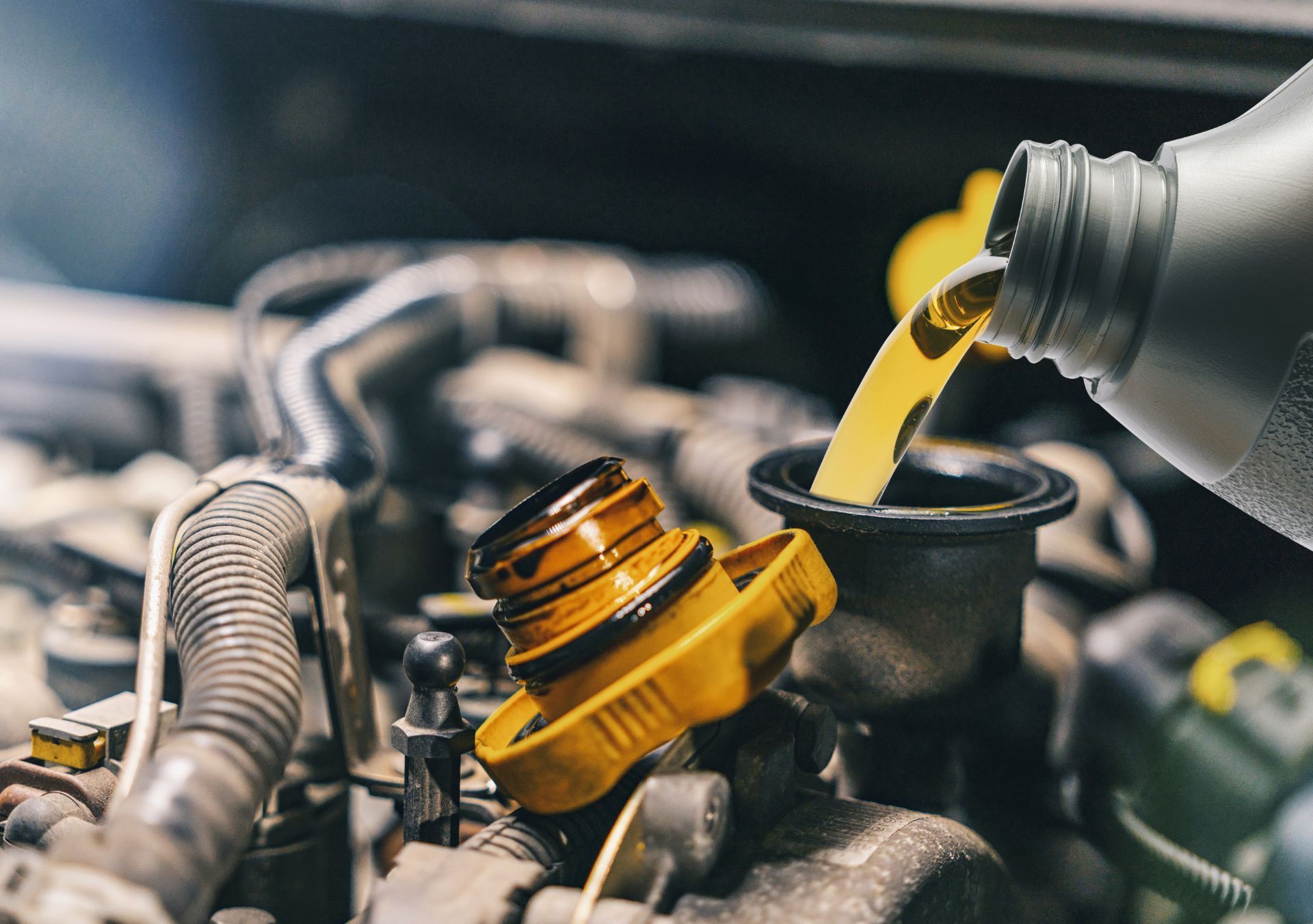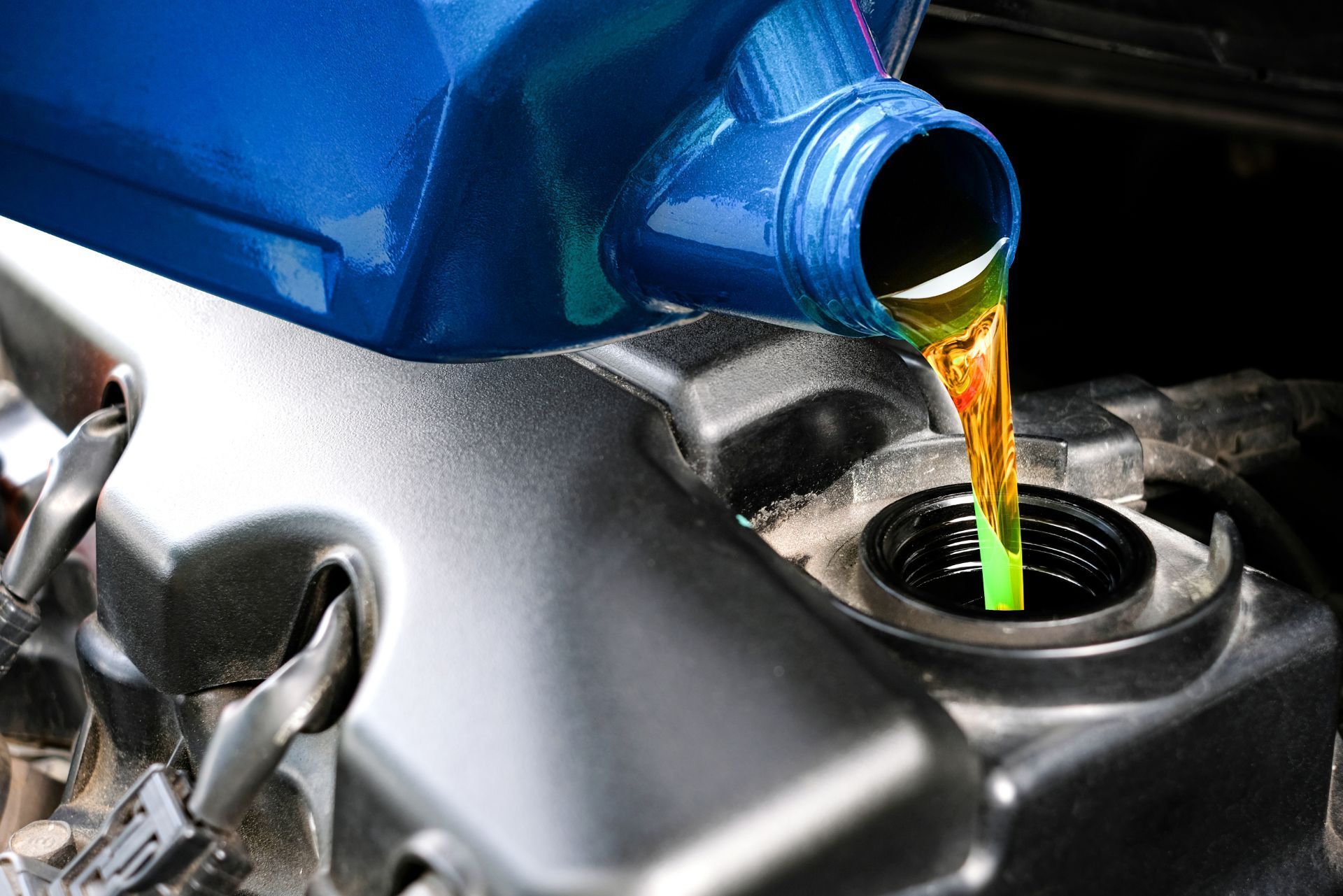
Most Common Business Policies
Index
Contact Us
This comprehensive guide aims to provide Texas oil change shop owners with essential information about insurance, highlighting its importance, the types of coverage available, and guidance on selecting the right policy for their business. By understanding the nuances of insurance, shop owners can safeguard their assets, manage risks, and ensure a successful operation.
Understanding the Importance of Insurance for Oil Change Shops
Insurance serves as a crucial safety net for oil change shops, protecting owners from financial losses due to unforeseen circumstances. The auto service industry is fraught with risks, making appropriate insurance coverage essential for maintaining operational stability.
Risks and Challenges in the Oil Change Business
Oil change businesses face a myriad of risks, including property damage, customer injuries, and employee-related incidents. Utilizing heavy machinery, dealing with hazardous materials, and managing customer interactions all contribute to a complex risk landscape. Additionally, the competitive nature of the industry necessitates preparedness for financial turmoil arising from lawsuits or accidents.
Natural disasters and economic changes further bolster the need for comprehensive insurance coverage. Whether it's a sudden hailstorm damaging vehicles in your shop or fluctuating oil prices affecting customer demand, risks are inevitable in this field. Moreover, the potential for equipment failure can lead to significant downtime, impacting both revenue and customer satisfaction. This underscores the importance of having insurance that not only covers physical damages but also accounts for loss of income during repair periods.
The Role of Insurance in Risk Management
Insurance functions as a vital component of a robust risk management strategy. By transferring potential financial losses to an insurance provider, business owners can focus on growth and operational efficiency. This strategic approach enables them to manage unforeseen setbacks without compromising their financial health.
Furthermore, understanding different coverage options can empower owners to make informed decisions to address specific risks relevant to their business model, enhancing their resilience against uncertainties. For instance, liability insurance can protect against claims from dissatisfied customers, while workers’ compensation insurance safeguards against employee injuries. Additionally, investing in specialized coverage, such as garage keepers insurance, can provide peace of mind by covering vehicles left in the shop for service, ensuring that both the business and its customers are protected from potential losses.

Types of Insurance Coverage for Oil Change Shops
Given the various risks associated with running an oil change shop, it is important to comprehend the various types of insurance coverage necessary for protection. Here's a detailed examination of the most common types of insurance suitable for oil change shops.
Property Insurance
Property insurance covers damages to the physical premises of an oil change shop, including the building and any equipment used in day-to-day operations. This insurance protects businesses from losses due to events like fires, theft, or vandalism.
In addition to covering the physical space, property insurance often includes coverage for tools and machinery, which are integral to the shop's operations. With the high value of specialized equipment in the automotive repair industry, obtaining a robust property insurance policy can significantly mitigate financial risks. Furthermore, many policies can be tailored to include coverage for business interruption, which can be crucial in the event that a catastrophic event forces the shop to close temporarily, ensuring that lost income is compensated during the downtime.
Liability Insurance
Liability insurance is critical for protecting businesses against lawsuits due to injuries or damages to third parties. For instance, if a customer is injured while in the shop or due to negligence in service, liability insurance can cover legal fees and settlements.
This type of insurance not only protects against lawsuits but also provides peace of mind, allowing owners to focus on their business operations without the constant worry of potential legal repercussions. Additionally, it can extend to cover product liability, which is particularly important if the shop sells automotive products or parts. This means that if a product sold by the shop causes damage or injury, the insurance can help cover the associated costs, further safeguarding the business's financial health.
Workers Compensation Insurance
Workers compensation insurance is vital for ensuring that employees are adequately protected in the event of work-related injuries or illnesses. When employees perform physical tasks in a potentially hazardous environment, such as an oil change shop, the risk of injury increases significantly.
This insurance provides wage replacement and medical benefits to employees injured on the job, ensuring they receive proper care without burdening the business financially. Moreover, it is often a legal requirement for businesses with employees, making it essential for compliance. Beyond the basic coverage, many workers' compensation policies also offer rehabilitation services, which can help injured employees return to work more quickly and safely. This not only aids in employee recovery but also helps maintain morale and productivity within the shop, creating a supportive work environment that values employee well-being.
Factors to Consider When Choosing an Insurance Policy
Selecting the right insurance policy for an oil change shop involves careful consideration of multiple factors. Understanding your unique business needs and how different policies address those requirements is crucial to making an informed decision.
Assessing Your Business Needs
Every oil change shop operates differently, so it's essential to assess your specific needs before choosing an insurance policy. Consider factors such as the size of your business, the types of services offered, and the volume of customers served. Thoroughly evaluating these factors will help identify which types of coverage are necessary for adequate protection.
Conducting a risk assessment can also guide you in determining potential risks and liabilities unique to your operation, enabling you to tailor coverage effectively. For instance, if your shop frequently handles high-performance vehicles, you may need additional coverage for specialized equipment or higher liability limits due to the increased risk associated with these services. Furthermore, consider the geographical location of your shop, as certain areas may be more prone to natural disasters or theft, necessitating specific coverage options.
Comparing Insurance Providers
Not all insurance providers are created equal. It's important to research and compare different providers to find one that aligns well with your specific needs and offers comprehensive coverage at a competitive rate. Review customer feedback, claim processing speed, and the level of customer service when evaluating potential providers.
Additionally, consider consulting with an insurance broker who specializes in commercial insurance for automotive services. They can assist with navigating different policies and finding the most suitable options for your shop. Brokers often have access to a wide range of insurance products and can provide insights into which providers have a strong reputation in the industry. This can save you time and ensure that you are making a well-informed choice that protects your business effectively.
Understanding Policy Terms and Conditions
Insurance policies can be complex and filled with jargon. It is vital for business owners to take the time to thoroughly read and understand the terms and conditions of any policy they consider purchasing. Pay attention to exclusions, coverage limits, and any additional riders that may be available.
Understanding the fine print can help avoid surprises during the claims process, ensuring that you have the expected coverage when a claim needs to be filed. It's also advisable to ask questions about any unclear terms or conditions directly with the insurer or broker. This proactive approach can clarify how various scenarios will be handled under the policy, such as what happens if a customer’s vehicle is damaged while in your care or how liability is managed in the event of an accident on your premises. Being well-informed will empower you to make decisions that not only protect your business but also foster trust with your clientele.
Costs Associated with Oil Change Shop Insurance
Insurance costs can vary significantly based on various factors such as coverage type, business size, and claims history. Understanding how to navigate these costs is essential for oil change shop owners. The unique nature of an oil change shop, which often involves handling hazardous materials and operating heavy machinery, makes it crucial to have the right insurance coverage to protect against potential liabilities and losses.
Premiums and Deductibles Explained
Insurance premiums refer to the amount you pay for your insurance coverage, typically expressed as an annual rate. On the other hand, the deductible is the amount you are responsible for paying out-of-pocket before your insurance coverage kicks in when a claim is submitted. It’s important for shop owners to carefully evaluate their options to ensure they are not overpaying for coverage that may not fully meet their needs.
Finding a balance between premiums and deductibles is key. A lower premium may result in a higher deductible, which could pose a financial burden if a significant claim arises. Conversely, a higher premium may provide a lower deductible but could strain cash flow. Assessing your business's financial situation will help you determine the best approach to managing these costs. Additionally, consider the potential impact of your location; shops in areas with higher crime rates or more severe weather may face increased premiums due to the elevated risk factors associated with those environments.
Ways to Reduce Insurance Costs
There are several strategies oil change shop owners can employ to lower their insurance costs. Firstly, implementing safety measures within the business can reduce the likelihood of claims, leading to lower premiums. These measures might include employee safety training, proper equipment maintenance, and regular inspections. Furthermore, maintaining a clean and organized workspace not only enhances safety but also demonstrates to insurers that you are proactive about risk management, which can further influence premium rates.
Additionally, bundling multiple types of insurance policies with a single provider can lead to discounts. Many insurance companies offer deals for businesses that combine property, liability, and worker’s compensation coverage, providing significant savings over standalone policies. Another effective strategy is to regularly review and shop around for insurance quotes. The insurance market can fluctuate, and new providers may offer competitive rates or better coverage options that could be more beneficial for your oil change shop. Engaging with a knowledgeable insurance broker can also help identify potential gaps in coverage and uncover opportunities for savings.

Understanding the claims process is paramount for oil change shop owners. When an incident occurs, having a grasp of how to file a claim and handle potential disputes with your insurance provider can make a significant difference.
The Claims Process
The claims process begins with notifying your insurance provider of the incident, followed by a complete documentation of losses. It’s important to keep records, take photographs of damages, and collect witness statements when applicable. Prompt action not only ensures a smoother claims process but also safeguards against delays in compensation.
Insurance providers typically have specific timelines for reporting claims and gathering necessary information, so adhering to these timelines can enhance the likelihood of receiving a favorable outcome. Additionally, understanding the specific terms and conditions of your policy can help you identify what is covered and what is not, allowing you to prepare your claim more effectively. Familiarizing yourself with common exclusions and limitations can also prevent unpleasant surprises during the claims process.
Handling Disputes with Your Insurance Provider
Despite best efforts, disputes with insurance providers can arise. If you encounter issues such as denied claims or disputes over coverage amounts, it’s crucial to understand your rights and options. Gathering all relevant documentation and correspondence can be instrumental during negotiations. Keeping a detailed log of all interactions with your insurance company, including dates, times, and the names of representatives you speak with, can provide valuable evidence if disputes escalate.
In some cases, enlisting the help of an insurance claims adjuster or attorney may be necessary to resolve disputes effectively. Having a clear plan in place can help navigate these challenges more efficiently. It’s also beneficial to explore alternative dispute resolution methods, such as mediation or arbitration, which can often lead to quicker and less costly resolutions than traditional litigation. Understanding these processes can empower oil change shop owners to advocate for their rights while maintaining a professional relationship with their insurance providers.
Future Trends in Oil Change Shop Insurance
The insurance landscape is continuously evolving. Oil change shop owners must stay aware of emerging trends that could influence their insurance needs.
Impact of Technological Advancements
Technological advancements, such as telematics and automated systems, are transforming the automotive industry. These innovations can lead to more precise risk assessments and personalized insurance policies, allowing shop owners to pay premiums that better reflect their unique operations.
Additionally, the increased use of tools like customer feedback systems can aid in maintaining high service standards, promoting safer environments and potentially lowering insurance costs over time. For example, integrating customer relationship management (CRM) software can help track customer interactions and service history, enabling shop owners to identify trends and areas for improvement. This proactive approach not only enhances customer satisfaction but also reduces the likelihood of disputes that could lead to claims, further benefiting insurance premiums.
Changing Regulations and Their Implications
Regulations surrounding the oil change and automotive service industry continue to evolve, particularly concerning environmental protections and worker safety. Oil change shop owners must remain vigilant and informed about regulatory changes, as these can have direct implications on insurance requirements.
Working with an industry expert or insurance broker can help navigate shifting regulations and ensure you remain compliant while optimizing your coverage. Furthermore, as sustainability becomes a priority for consumers and regulators alike, oil change shops may need to adapt their practices to reduce environmental impact. This could include investing in eco-friendly products and waste disposal methods, which not only align with regulatory expectations but may also open up new avenues for insurance discounts and incentives aimed at promoting green practices.
Moreover, as the industry shifts towards more sustainable practices, shop owners may find that their insurance policies need to evolve as well. For instance, coverage for new types of services, such as hybrid and electric vehicle maintenance, may become increasingly relevant. Understanding these emerging trends is crucial for ensuring that your shop is adequately protected and positioned for future growth in a rapidly changing marketplace.


